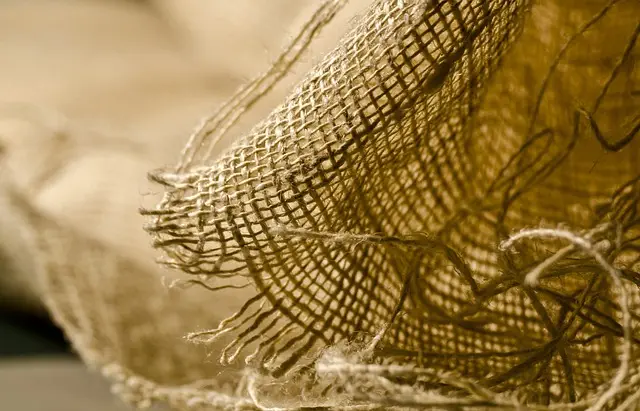Muscle soreness, particularly delayed onset muscle soreness (DOMS), is a common post-exercise issue caused by microtrauma in muscles. Kratom, from Southeast Asia, has been studied for its potential to alleviate this soreness due to its analgesic properties from alkaloids like mitragynine and 7-hydroxymitragynine, which interact with opioid receptors. These alkaloids also exhibit anti-inflammatory effects that could aid muscle recovery by complementing the pain relief. Beyond pain management, users have reported that certain kratom strains may promote hair growth, potentially due to their influence on hormone balance and blood flow, which create a more conducive environment for hair follicles. Despite these anecdotal benefits, it's essential to proceed with caution as scientific evidence is still emerging, and kratom's effects on muscle recovery and hair regrowth—including the claim of 'kratom hair loss grow back'—require further investigation. Always consult a medical professional before using kratom as a supplement for wellness, considering its potential side effects and the necessity for more research to establish its safety and efficacy.
Muscle soreness can be a persistent challenge for fitness enthusiasts and individuals recovering from injury. When exploring natural remedies, kratom has emerged as a potential aid not only for muscle relief but also with intriguing implications for hair health and regrowth. This article delves into the multifaceted effects of kratom, elucidating its role in alleviating muscular discomfort and examining the science supporting these benefits. As we navigate through the mechanisms that make kratom a promising option for muscle recovery, we’ll also explore its potential impact on hair loss and how it might aid in hair regrowth, offering insights into a holistic approach to wellness.
- Understanding Muscle Soreness and Kratom's Role in Relief
- Exploring the Science Behind Kratom for Muscle Recovery and Its Impact on Hair Health
- Effective Strategies for Utilizing Kratom to Alleviate Muscle Soreness with a Focus on Potential for Hair Regrowth
Understanding Muscle Soreness and Kratom's Role in Relief

Muscle soreness, a common experience following intense physical activity or exercise, can range from mild discomfort to severe pain that hinders daily functions and recovery. The cause of muscle soreness, often termed delayed onset muscle soreness (DOMS), is primarily due to microtrauma in the muscles, which occurs when they are subjected to unfamiliar or intense stress. This stress can lead to an inflammatory response, resulting in the characteristic pain and tenderness. Understanding the mechanisms behind muscle recovery and relief is crucial for athletes and individuals with active lifestyles.
Kratom, a tropical evergreen tree native to Southeast Asia, has garnered attention for its potential therapeutic properties, including analgesic effects that may aid in muscle soreness relief. The active compounds found in kratom leaves, known as alkaloids such as mitragynine and 7-hydroxymitragynine, are believed to interact with the body’s opioid receptors, which can help alleviate pain. Additionally, kratom may offer anti-inflammatory benefits, which could complement its analgesic properties in addressing muscle soreness. Some users report that kratom not only assists with pain management but also promotes overall well-being and energy levels, which are essential for recovery processes. It’s worth mentioning that while kratom shows promise as a natural remedy, it is imperative to approach its use with caution due to its potential side effects and the need for further scientific validation. Moreover, individuals experiencing hair loss, a concern sometimes associated with intense physical activity or stress, may be interested in exploring kratom’s role in promoting hair growth. Some anecdotal evidence suggests that certain kratom strains may stimulate hair follicles, potentially leading to hair regrowth; however, this requires more research to substantiate these claims.
Exploring the Science Behind Kratom for Muscle Recovery and Its Impact on Hair Health

Kratom, a plant from Southeast Asia, has garnered attention for its potential impact on muscle recovery and, intriguingly, hair health. The science behind kratom’s effects on muscles lies in its alkaloids, particularly mitragynine and 7-hydroxymitragynine, which are believed to interact with the body’s opioid receptors, potentially reducing pain and inflammation associated with muscle soreness. This analgesic property can aid in muscle recovery by alleviating discomfort that might hinder routine physical activities. Furthermore, these compounds may also stimulate the central nervous system, promoting increased blood flow to affected areas, which is conducive to healing and regeneration of muscle tissues.
In parallel with its benefits for muscle health, research into kratom’s impact on hair health has emerged, with some studies suggesting that certain alkaloids may influence hair growth. While the mechanisms are not entirely clear, it is hypothesized that these compounds could modulate hormones related to hair growth and inhibit the effects of DHT (dihydrotestosterone), a hormone linked to hair loss. This hormonal modulation might provide a supportive role in preventing hair loss or potentially facilitating hair regrowth, as observed in some anecdotal reports. The potential of kratom to support muscle recovery and promote hair health presents an interesting avenue for further scientific investigation, with the possibility of it being a multifaceted supplement for overall wellness, including addressing concerns related to ‘kratom hair loss grow back’. As with any supplement, it is crucial to approach its use with caution, adhering to recommended dosages and consulting healthcare professionals to ensure safety and efficacy.
Effective Strategies for Utilizing Kratom to Alleviate Muscle Soreness with a Focus on Potential for Hair Regrowth

Kratom, a plant from Southeast Asia with leaves that contain compounds that can have various effects on the body, has been explored for its potential in alleviating muscle soreness. When it comes to post-exercise recovery, some individuals report that kratom may offer relief due to its analgesic properties. The alkaloids present in kratom leaves, such as mitragynine and 7-hydroxymitragynine, are believed to interact with opioid receptors in the brain, which can help in managing pain levels. This interaction may be beneficial for those experiencing muscle soreness from intense physical activity or even chronic pain conditions.
For individuals also concerned with hair regrowth, kratom’s potential benefits extend beyond pain relief. Some anecdotal evidence suggests that certain strains of kratom may promote hair growth due to its effects on hormone balance and circulation. The anti-inflammatory qualities of kratom might also contribute to a healthier scalp environment, which is conducive to hair follicle health. It’s important to note that while these benefits are promising, more scientific research is needed to fully understand the relationship between kratom and hair regrowth. Users considering kratom for either muscle soreness relief or hair regrowth should approach it cautiously, adhering to recommended dosages and consulting with healthcare professionals to ensure safety and efficacy.
Muscle soreness, often a byproduct of intense physical activity, can hinder recovery and potentially affect overall well-being. The exploration of kratom’s role in alleviating such discomfort has revealed promising insights, particularly concerning its influence on hair health. The scientific evidence suggests that certain strains of kratom may contribute to muscle relief while also supporting hair regrowth. By adopting the strategies outlined in this article for using kratom responsibly and effectively, individuals may find a two-fold benefit: not only could they experience relief from muscle soreness, but they might also promote healthier hair growth. It is clear that further research is necessary to fully understand the scope of kratom’s effects on these aspects of health. However, for those seeking a natural approach to both muscle recovery and hair health, kratom offers a compelling option to consider within a holistic health regimen.






